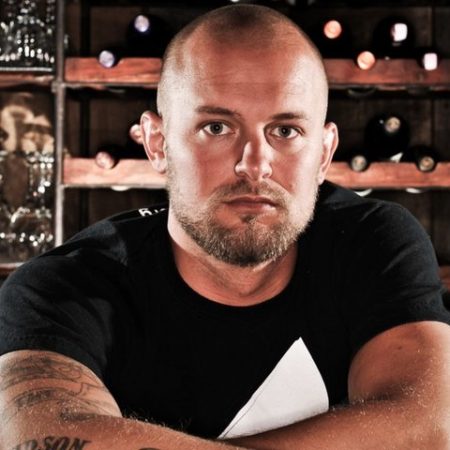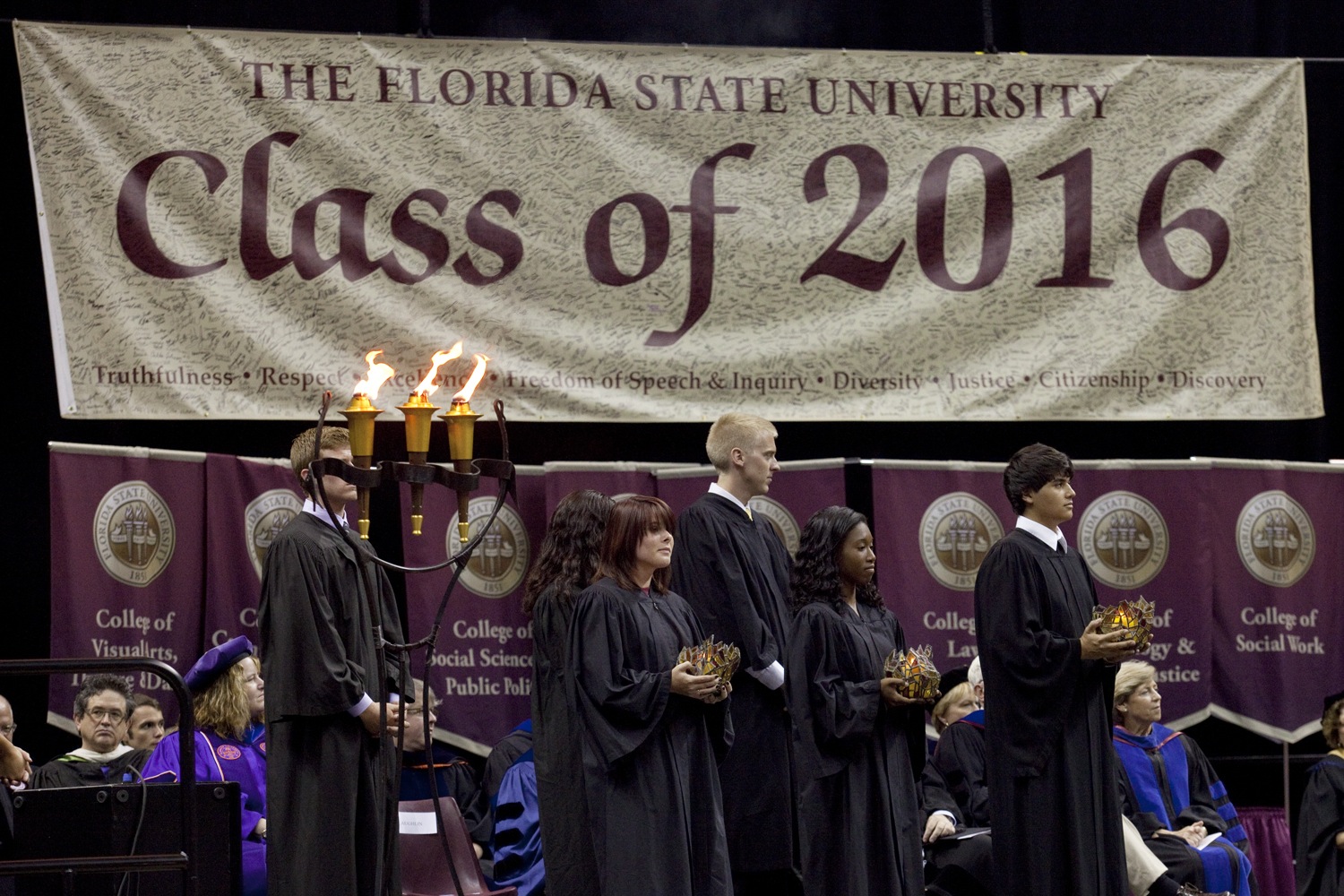
It doesn’t matter if you’re not the smartest, the most athletic or the most ambitious person in the world. Simply find something you’re passionate about, devote yourself to it completely, and you just might find that you have the ability to change the world.
That was the message of encouragement offered by Doc Hendley, president and founder of the international aid organization Wine to Water, as he spoke to Florida State University’s newest freshman class on Sunday, Aug. 26.
Several thousand members of the Class of 2016 and their family members attended the 2012 New Student Convocation at the Tallahassee-Leon Couny Civic Center. The annual event officially welcomes first-year students into the university’s community of scholars and introduces them to the university’s history and traditions on the eve of the first day of the fall semester.
“I want to encourage ya’ll,” Hendley said with a light Southern accent. “It may not happen this week, it might not happen this semester, it might not happen this year, but if you devote yourself to finding something that you’re passionate about . . . it will make your (college) experience a million times more memorable.”
Hendley explained to his audience how he discovered his own passion during his senior year at North Carolina State University in 2003. While the school was on its winter break, he decided it was time to put some thought into what he — a ‘C’ student and part-time bartender whose biggest concerns usually centered around what was happening that night —wanted to do with his life. As fate would have it, during that same winter break Hendley read a story about the world’s water crisis that shook his sense of complacency.
“I remember researching online and being shocked to find out that over a billion people — with a ‘b’ — lack access to clean drinking water,” he said. “As I continued to research, I found out that more children in our world die from dirty water than anything else.”
Thus was born Hendley’s passion for providing clean, safe drinking water to as many of the world’s needy people as he could. He began in January 2004 by staging wine benefit events, such as tastings, around Raleigh, N.C., and then using the money raised to support water projects around the world. Those early events were a big success, and Hendley’s confidence grew that he could make a difference on an even larger scale. By August of that year, he was living in Darfur, Sudan, installing water systems for victims of the government-supported genocide there.

Over the years, Wine to Water has grown in size, been certified as a 501(c)(3), nonprofit aid organization, and accomplished some amazing things. The organization has provided clean water and sanitation in many countries, including Sudan, India, Cambodia, Uganda, Ethiopia and Haiti. The work hasn’t always been easy, or safe: Hendley’s group once came under fire in Darfur, and several of his fellow volunteers lost their lives. But thanks to Wine to Water’s efforts over the past eight years, an estimated 100,000 people around the world are now alive who probably wouldn’t be, if not for the work of a man who found his passion and pursued it doggedly.
“I grew up with a feeling of inadequacy for most of my life,” Hendley told his Convocation audience. “I grew up thinking that I didn’t have the ability to accomplish great things or do anything exceptional with my life.” But, he said, if someone as “unexceptional” as he could find something he’s passionate about and use it to make a major, positive change in the world, then all of us have it within us.
Hendley’s book, also called “Wine to Water,” was this year’s One Book/One Campus summer reading selection for all incoming first-year students. He was named a CNN Hero for 2009.
Earlier in the Convocation ceremony, Florida State President Eric J. Barron welcomed the new students and explained the significance of the event.
“Convocation is a gathering of the university community to commemorate significant events in the life of the institution,” he said. “Few things are more worthy of celebration than the entry of a new class of students into this university.”
Provost and Executive Vice President for Academic Affairs Garnett S. Stokes provided opening remarks, encouraging members of the Class of 2016 to take full advantage of the academic opportunities that are available to them.
Following Hendley’s Convocation address, Dean of Undergraduate Studies Karen Laughlin led a Torch Ceremony and the recitation of the university’s Academic Honor Policy Pledge.
During the Torch Ceremony, three upperclassmen passed torches to three freshmen, symbolically passing the university’s ideals from one class to the next. The torches stand for Vires (strength), Artes (skill) and Mores (character) as depicted in the Florida State University seal. The upperclassmen were Dustin Hopkins (Vires), Ellen Truchon (Artes) and Lee Gordon (Mores). The freshmen, chosen on the basis of essays they wrote about the qualities of the three torches, were Kalyn Badura (Vires), Vernisa Allen (Artes) and Wesley Fader (Mores). Student Luke Evans read the essays.
Vice President for Student Affairs Mary Coburn next led a Convocation Class Pin Ceremony and the recitation of the university’s Seminole Creed. She also discussed the “uphold the garnet and gold” philosophy of respect for the dignity and worth of each member of the university community.
Later during the ceremony, students were led in what for most was a first singing of Florida State’s alma mater, “High O’er the Towering Pines.”
Upon the program’s conclusion, buses transported the students and other audience members from the Civic Center to the President’s House on West Tennessee Street for what has quickly become a favorite Florida State tradition —the President’s Backyard Barbecue. The annual chow-down is intended to show incoming first-year students Southern hospitality and make them feel at home on campus. Barron and his wife, Molly, as well as the deans of the university’s colleges, were on hand to meet and greet the students.
To make meeting new classmates — and their respective deans —easier, each student was given a T-shirt that is color-coded to the college in which he or she enrolled.




